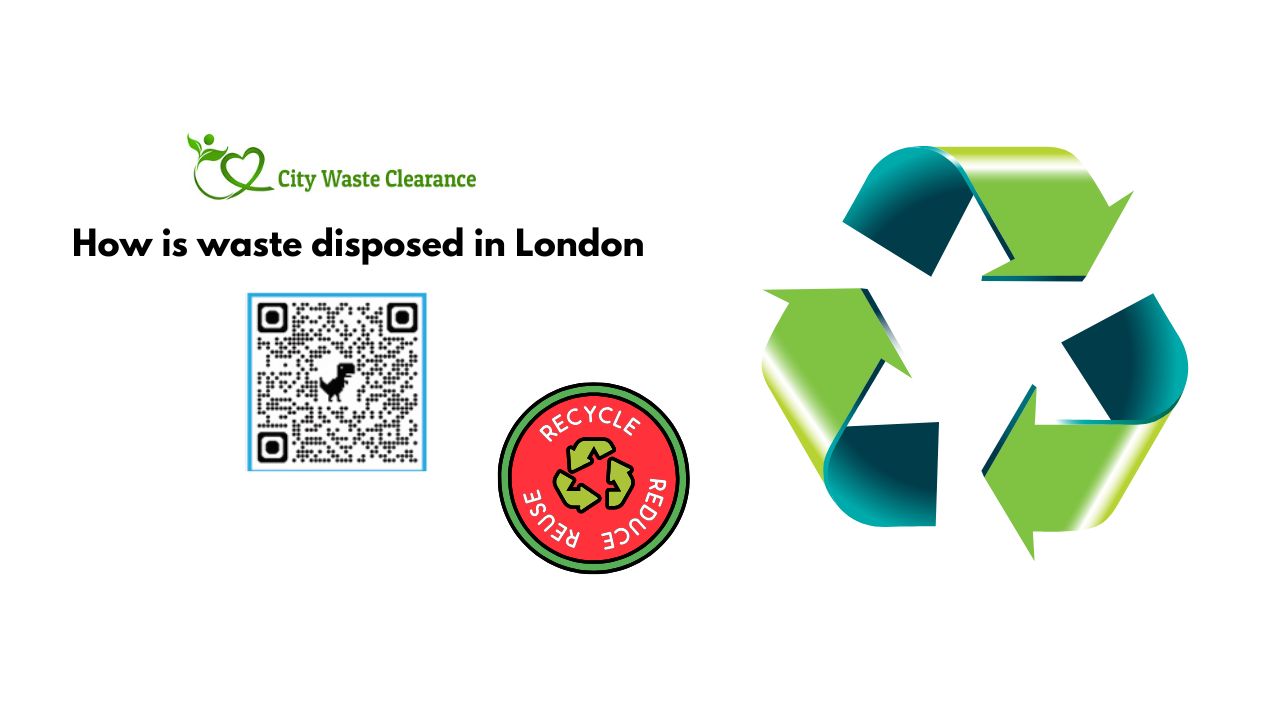Waste in London is disposed of through recycling, energy recovery, and landfill. The city prioritizes recycling and waste-to-energy methods.
London, a bustling metropolis, generates a significant amount of waste daily. Effective waste management is crucial for maintaining the city’s cleanliness and environmental health. Recycling is a top priority, with various facilities processing materials like paper, plastic, and metal. Waste that cannot be recycled often goes to energy recovery plants, where it is converted into electricity.
Landfills are used as a last resort due to their environmental impact. The city continuously explores innovative solutions to enhance waste disposal efficiency. Public awareness campaigns encourage residents to participate in recycling programs, contributing to a greener London.
Waste Collection Systems
Residential waste collection in London is very organized. Each household gets a wheelie bin. These bins are for general waste, recycling, and composting. Collection trucks come weekly to pick up the waste. Residents must separate their waste correctly. Fines are possible for incorrect sorting. The system helps keep the city clean and reduces landfill waste.
Businesses in London use special services for waste collection. Commercial waste includes paper, plastics, and food waste. Collection services offer different plans based on the business size. Some businesses need daily pickups. Others might need weekly pickups. Waste is sorted into recyclable and non-recyclable categories. Proper waste management is crucial for businesses. It ensures a clean environment and legal compliance.
Recycling Initiatives
London offers curbside recycling for all residents. Special bins are provided for different types of waste. These bins include separate containers for paper, plastics, and glass. Collection happens on a regular schedule. Families sort their waste and place it in the correct bins. This makes recycling easy and efficient. The city ensures all collected items are processed properly.
Recycling centers are available throughout London. These centers accept items not suitable for curbside bins. Examples include large electronics and hazardous materials. Residents can bring these items to the centers free of charge. The staff at these centers are trained to handle special waste. This helps keep harmful materials out of landfills.
Composting Programs
London efficiently manages How is waste disposed in London through comprehensive composting programs. These initiatives convert organic waste into valuable compost, promoting sustainability and reducing landfill usage.
Household Composting
Many homes in London use household composting. They turn food scraps into rich soil. This soil helps gardens grow. People can compost items like fruit peels, vegetable scraps, and coffee grounds. They need a compost bin for this. These bins keep the compost tidy and smell-free. It is an easy way to reduce waste and help the environment.
Community Composting
Community composting is popular in London. Groups of people share composting spaces. They bring their food waste to a central bin. Volunteers manage these bins. The compost made is used in local gardens and parks. This helps grow plants and flowers. Community composting brings people together. It also reduces waste and supports green spaces.
Waste-to-energy
Incineration plants burn waste. This process reduces waste volume. Burning waste produces heat. The heat can generate electricity. Some plants also produce steam. This steam can heat homes. Incineration also reduces landfill use. This helps save space.
Energy recovery facilities convert waste into energy. They use advanced technologies. Facilities can produce electricity and heat. They help reduce fossil fuel use. Energy recovery is efficient. It makes use of waste materials. These facilities also help lower carbon emissions.
Landfill Management
London efficiently manages waste disposal through advanced landfill techniques and recycling programs. Authorities focus on reducing landfill use by promoting recycling and waste-to-energy solutions.
Modern Landfill Practices
Modern landfill practices use liners to protect soil and water. Leachate systems collect and treat water that passes through waste. Gas collection systems capture methane for energy use.
Environmental Impact
Landfills can impact the environment. Methane from decomposing waste is a potent greenhouse gas. Leachate can pollute water sources if not managed. Modern systems reduce these risks. Recycling and composting decrease landfill waste.
Public Awareness Campaigns
Schools in London teach kids about recycling and waste management. Teachers show students how to sort trash. Workshops are held to explain the importance of reducing waste. Kids learn how waste affects the environment. They also learn about composting and reusing materials. These lessons help kids become responsible adults. Parents also get tips from these programs. They learn to set good examples at home.
Local councils hold community events to spread awareness. People join cleanup drives to keep neighborhoods clean. Volunteers help in these events. They distribute recycling bins and educational materials. These events make people feel part of a bigger cause. This keeps the community engaged and informed.
Conclusion
How is waste disposed in London ensures a cleaner and healthier environment. The city employs advanced recycling methods and waste management strategies. Residents play a crucial role by segregating waste properly. London’s continuous efforts aim to minimize landfill use and promote sustainability.
By staying informed and proactive, everyone can contribute to a greener future.


